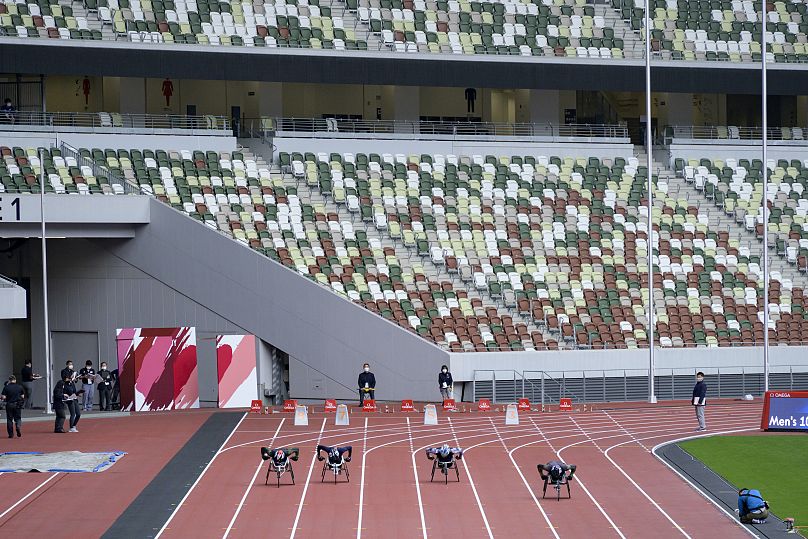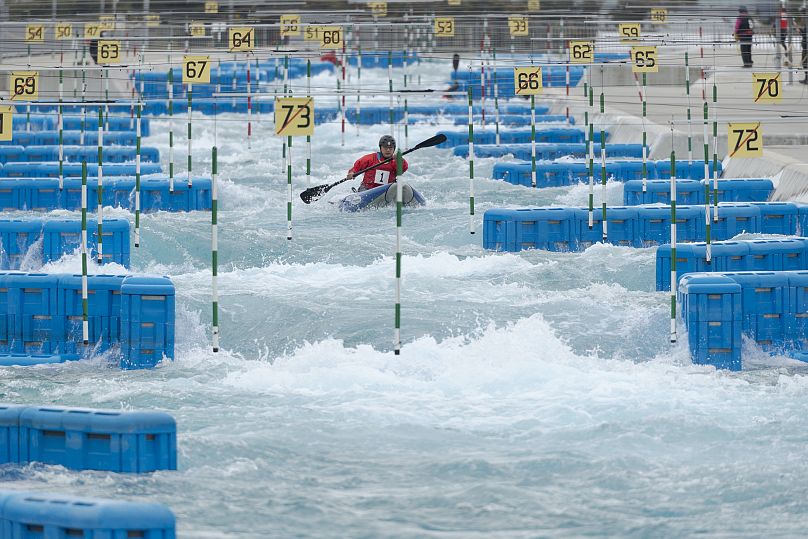When the Tokyo 2020 Olympics began in July 2021, I was among a limited number of foreign journalists in Japan that covered the Games.
As a Tokyo-based writer, I produced features and news items from outside of the Olympic venues for the London-based online newspaper The Independent.
When the Games ended, four main themes remained with me: sustainability and accessibility, public support for the athletes, Japanese hospitality and my own sense of the post-Games legacy.
SUSTAINABILITY AND ACCESSIBILITY
After Tokyo was awarded host city status for the Olympics back in 2013, sustainability and accessibility became a central theme of the Games.
I first became aware of the city’s sustainability goals in 2017, when I was researching an article on the subject for The ACCJ Journal, a business magazine in Japan.
I interviewed representatives from the Tokyo Metropolitan Government and the Ministry of the Environment, and an academic affiliated to the National Institute for Materials Science.
They explained the Tokyo 2020 Medal Project, a recycling initiative to gather used electronics devices from the public and convert metals inside them to Olympic medals.
Ultimately, sustainable initiatives at the Games included Covid-19 countermeasures and promotion of gender equality (by ensuring high representation of women in the organizing committee’s board, for instance).
Addressing climate change was also a priority, as witnessed by such innovations as using fuel cell powered electric shuttles to carry athletes and other participants at the Games.
As was accessibility, in particular the creation of long-term infrastructure that was necessary for a barrier-free Games and post-Games city, such as ramps, elevators, and tactile floor markings in rail and metro stations and other public areas.
Expansion of designated areas for wheelchair users and universal design communication, including Braille block, on the city’s transit system was also a key strategy to ensure accessibility at the Games and beyond.
After all, over 4000 Paralympian athletes took part in the Tokyo 2020 Olympics, including gold and silver medal winner, Italian Paralympian fencer Beatrice Vio.
Riding on a buggy on her way to compete at Tokyo 2020, she noted rather touchingly on social media: “Thanks to all those who believed in me and in this mission not impossible. #Tokyo2020 #Paralympics.”
SUPPORTING ATHLETES
Held amid a global pandemic and a nation in the grip of public health concerns, Tokyo 2020 will, for me, also be remembered for how the public’s mood shifted from concern to excitement.
For instance, I covered the opening ceremony from a sports bar in the city, though socially distanced from other patrons, who were mostly Japanese.
As the tempered entertainment began and the athletes’ parade respectfully gathered pace, I sensed unease, at first, in the audience.
And yet, by the time the Japanese athletes filed past and the national anthem played, the tense mood had shifted.
The world—not just the patrons in the bar—had seen for themselves the many thousands of dedicated athletes who were finally about to fulfil their life-long dreams.
Before I left the sports bar, I saw that many of the patrons, who had been subdued, were now filled with excitement. Despite lingering concerns, a sudden shift in mood had occurred, and it carried through the Games.
As I reported, Japanese athletes in karate and skateboarding—both new Olympic sports—had particularly noteworthy performances at Tokyo 2020. Their success helped to lift the nation’s mood, and, indeed, the mood of athletes from abroad.
As Australian tennis player, and Tokyo 2020 Olympian, Ellen Perez noted on Twitter during the Games: “What an unforgettable experience this was. Nothing greater [than] playing for your country. So blessed and proud to be Australian. I will be back stronger. Thank you Tokyo[.]”
“OMOTENASHI”
Speaking personally, covering the Games under the cloud of a global pandemic was at times worrisome. I had, for instance, to take public transit to conduct interviews around the city.
And yet I need not have worried. After all, I was aware of omotenashi, the uniquely Japanese sense of hospitality where people go that extra mile to put you at ease.
Omotenashi was felt in the respectful way that people universally respected social distancing rules and partook in Covid-19 countermeasures, such as wearing masks.
It was felt when using sanitization stations at the entrance of stores, restaurants, and other venues, or in the orderly manner by which the media were chaperoned between Olympics-related venues.
Omotenashi was also expressed in the enthusiasm with which a taxi driver spoke to me. As I was producing a report at the time, he drove me to the Athletes Village, answering my questions with wide open eyes and a genuine desire to help in his voice.
Indeed, the smooth running of the Games, much of it done quietly behind-the-scenes, was a constant theme of conversation among international media.
LEGACY
This leads to the question of legacy. In my view, Tokyo 2020 will be remembered as Games that, if any country could have pulled off, it was to be Japan.
Looking back, my reporting mostly covered news related to the up and down movement of daily Covid-19 cases in Tokyo.
For most of the Games, the concern was whether or not it would be cancelled. And yet Tokyo—and Japan—kept the Olympic flame burning.
The Olympians and Paralympians, supported by thousands of volunteers and other support staff, put on Games to remember.
Thus, the legacy of Tokyo 2020 will, for me, be the athletes’ fighting spirit; and Japan’s ability to pull together during challenging times.
As Ukrainian Paralympian Vladyslav Zahrebelnyi is reported to have said, in response to his gold medal-winning performance in the men’s long jump: “Japan is like outer space for me. I am in awe, and this really inspired me. I absorbed the energy of this city and it helped me to perform today.”
By John Amari



